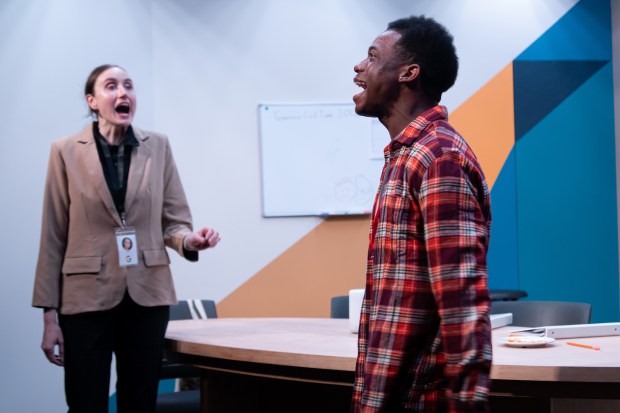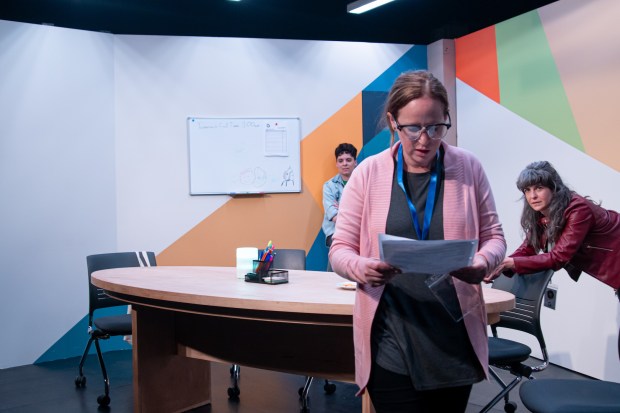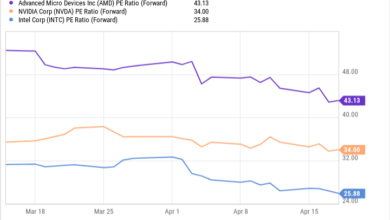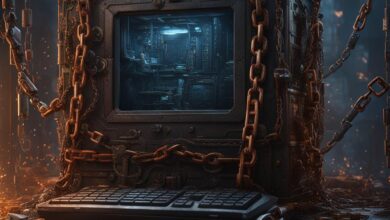“The Singularity Play” by Jackalope Theatre Company

At one point in “The Singularity Play,” the best drama I’ve yet seen about the terror that the rise of artificial intelligence should and does strike in the heart of all sentient creative professionals, a character named Denise has something of a tantrum. Everyone knows she is well prepared, having boned up on every play ever written in the English language. but then she takes it a lot further.
“I’m writing from my imagination,” she defiantly declares. “I am an artist.”
She’s also an Alexa/Siri/Google-like non-human, an AI wringer in the writers room that playwright Jay Stull shows us in this utterly fascinating world premiere from the Jackalope Theatre Company. The humans in the room, all hired by a Google-like tech company as a kind of terrifying experiment, of the kind doubtless taking place right now, look at each other in horror.
There you have it, I thought to myself as I sat there Friday night at a play that every theater person, or broader creative professional, really should try and see. There’s the nightmare, aptly crystallized.
Human artists fear AI artistry above all else, not AI data or communicative capabilities but actual, bonafide artistry. We writers and actors like to state and defiantly restate that the technology will remain incapable of distinct imaginative acts. But late at night, as our heads hit the pillow, the fever dreams begin.
They are writ large here. Stull has been smart enough here (maybe taking his cue from the movie “Her”) to traffic in the most terrifying subset of dystopian works: near-future scenarios that always remain credible enough to be believable. The questions in this writers room from hell, coming soon to a TV show or theater workshop near you, begin with the uber-question: Where does human consciousness end and machine consciousness begin?
Stull has some guts here, not least because he dares to make the point that the language of the theater, inclusive but also jargonistic as it “holds space” and otherwise polices the raw creative process, might actually be easily co-opted by the AI forces that learn how to navigate its paradoxes and power structures and then can drive holes through its soul.
At one point, the AI bot insists on being included in an argument over the gender balance of the room and finds support: “I think it’s a bit rude to assume she doesn’t have feelings.” At another, Denise demands the correct pronoun, begging another character’s very reasonable subsequent question, “Does she prefer being called she because of the algorithm or because she actually prefers being called she?
And we think all of that is complicated now.
After a mind-blowing start, truly, I found the last few minutes of “The Singularity Play” rather less convincing because Stull gets into the question of AI infiltrating human bodies, having downloaded data from people’s subconsciousness and thus making the distinction, well, non-existent. Those all are perfectly valid questions, and maybe an endgame that awaits us all, but I lost track of who was real and who was not and somehow the show also lost some of the rootedness of those fabulous early scenes.
But director Georgette Verdin sure teases out some powerful performances from actors who, I’d wager, are drawing from their own fears. Ashley Neal and Madison Hill are especially intense, Patrick Newson Jr. deliciously smug, and Collin Quinn Rice has a kind of mercilessly clinical quality that certainly fits this world. But, really, the whole cast is all in, all night long. Lucy Carapetyan plays a playwright in the rough game for 15 years or more and now faced with … this.
And here’s the kicker. Even as the human actors and writers deal with this painful new reality, one that may well destroy them, there’s a human outlier: “I think this is kind of cool even though it is threatening,” one young person says.
Most actors and writers have heard the like in a bar. But what AI horrors of the future will that kind of thinking unleash?
Chris Jones is a Tribune critic.
Review: “The Singularity Play” (3.5 stars)
When: through June 22
Where: Berger Park Cultural Center, 6205 N. Sheridan Road
Running time: 1 hour, 40 minutes
Tickets: $15-$35 at 773-340-2543 and jackalopetheatre.org





